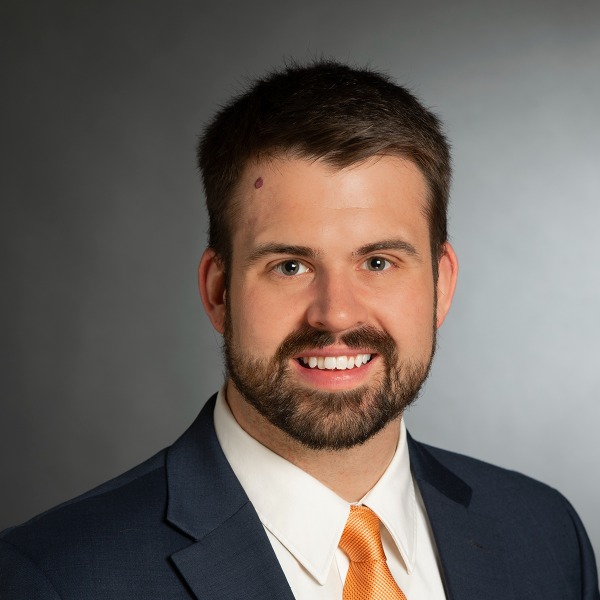Scott Sheehan

Scott Sheehan is an Associate Director for the Center for Residence Life. He began his role at RIT in March of 2022 and received his Ed.D. in Higher Education Administration from the University of Rochester. His professional interests are in college student mental health/wellbeing and how public policy impacts the work of Student Affairs Professionals. Scott lives in Irondequoit, NY with his wife Morgan and their Australian Shepard.
1. HOW DO YOU TEACH OR EXEMPLIFY APPLIED CRITICAL THINKING?
I exemplify applied critical thinking in my role as a support to students experiencing adverse mental health issues in our residential communities. Serving on our Student Behavior Consultation Team (SBCT) we work collaboratively across the institution to define the problem the student may be experiencing, develop a plan for outreach, try and help the student get connected to resources, and create a plan to help that student succeed here at RIT. Each student comes from a different background and lived experience so we need to critically think about each student's individual needs in some of their most difficult moments. This requires deep thought and contemplation about how we as an institution work together to help each individual student define their own success.
2. WHY DO YOU THINK APPLIED CRITICAL THINKING IS IMPORTANT IN YOUR DOMAIN OR ROLE?
Applied critical thinking is important in my role because without, students would not have the best outcomes for their residential experience here at RIT. Having a positive residential experience here at RIT requires us to provide meaning to the student experience here and that looks different for every student. Since this looks so different for every student, we have to be critical thinkers in identifying how we can meet students where they are developmentally across years that a student lives with us in the residence halls.
3. CAN YOU SHARE A STORY WHERE QUALITY APPLIED CRITICAL THINKING WAS KEY TO YOUR SUCCESS?
In a previous role I worked on the implementation of a Counselor in Residence Program to help students who were experiencing suicidal ideation. This program was created because of critical thinking that was done during my dissertation in my doctoral program. Without thinking critically about the problems students were facing when it came to adverse mental health issues the alternative of creating this program on that campus would have never occurred. The program is currently in its' second year of existence and has expanded in scope from the first year of implementation.
4. HOW DO YOU USE CRITICAL THINKING IN OTHER AREAS OF YOUR LIFE OUTSIDE OF RIT?
I try and use critical thinking skills in my everyday life when it comes to political issues. I think that in a well-functioning democratic society there needs to be an informed electorate that uses critical thinking skills to better society as a whole. Many of the issues we as a country face today are multi-faceted in their causes and without critical thinking, we would do an inferior job of addressing these challenges.
5. ANY LAST CRITICAL THOUGHTS YOU WISH TO SHARE?
I would simply like to challenge others to use a critical thought process more in their daily lives. Multi-causal problems exist all around us and without critical thinking we cannot find the most efficient and socially just way to address these issues.